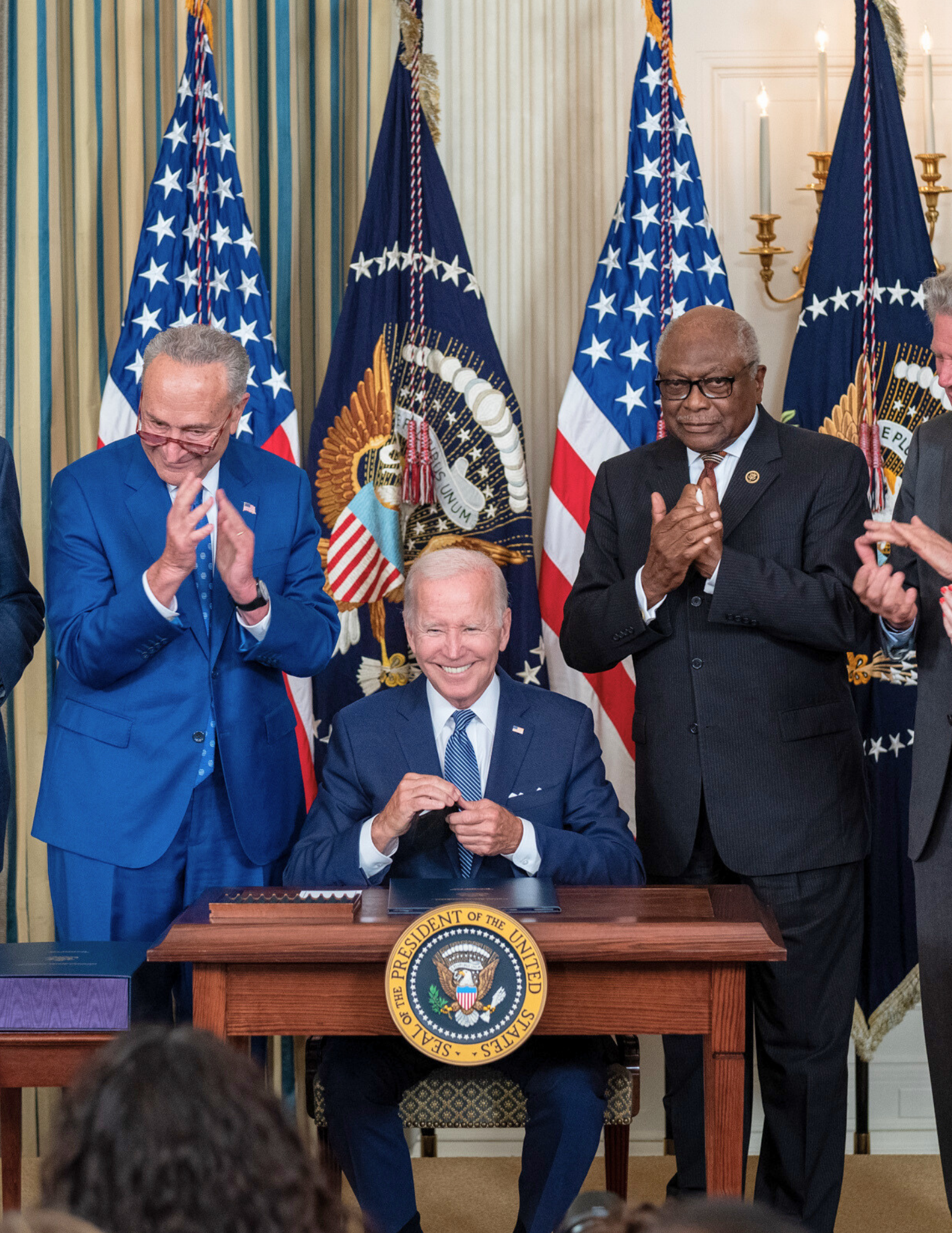Home / U.S. Climate Alliance Applauds Final Passage of the Inflation Reduction Act of 2022

WASHINGTON, D.C. – In response to passage of the Inflation Reduction Act of 2022 by both chambers of Congress, the U.S. Climate Alliance issued the following statement:
“We commend Congress for passing historic legislation with urgently needed investments to combat the global climate crisis, strengthen our economy, and safeguard the health and well-being of Americans,” said Alliance co-chairs Governors Hochul (NY), Inslee (WA), and Newsom (CA). “While we know there’s much more work to do to protect the most vulnerable, this puts our country’s commitment to cut emissions in half by 2030 within reach. We stand ready at the state level, alongside President Biden, to use every tool available to deliver on the promise of this legislation — and go even further.”
Recent analysis of the Inflation Reduction Act shows that its climate provisions can put the United States on a pathway to reducing net greenhouse gas (GHG) emissions up to 44 percent below 2005 levels, lower Americans’ energy costs, and create more than nine million jobs by 2030. Alliance Governors have pledged to collectively reduce greenhouse gas emissions by at least 50-52 percent below 2005 levels by 2030.
The bill makes meaningful investments in state climate action, providing critical resources to accelerate state leadership in tackling greenhouse gas emissions and protecting Americans from climate impacts, including:
$27 billion for states and other entities to deploy zero-emission technologies and reduce climate pollution in disadvantaged communities through a Greenhouse Gas Reduction Fund.
$8.6 billion for state energy offices to help consumers retrofit their homes through High-Efficiency Electric Homes Rebates (HEEHRA) and a Home Energy Performance-Based, Whole-House Rebates (HOMES) program.
$5 billion for states, municipalities, and tribal governments to develop and implement plans to reduce climate pollution through Climate Pollution Reduction Grants.
$2.2 billion for state and private forestry conservation programs to plant trees and undertake land acquisition projects.
$1 billion for state and local governments to adopt building energy codes, including $670 million for zero energy codes.
$5 million for states to adopt and implement clean vehicle standards.
Today’s vote comes after 22 Alliance governors called for a bold climate and clean energy package from Congress in June. The legislation now goes to President Biden’s desk for signature.
Launched in 2017 by the governors of Washington, New York, and California to help fill the void left by the U.S. federal government’s withdrawal from the Paris Agreement, the Alliance has grown to include 24 governors from across the U.S. representing approximately 60 percent of the U.S. economy and 55 percent of the U.S. population. Governors in the Alliance have pledged to collectively reduce net greenhouse gas emissions by at least 26-28 percent by 2025, 50-52 percent by 2030, and 61-66 percent by 2035, all below 2005 levels, and collectively achieve overall net-zero greenhouse gas emissions as soon as practicable, and no later than 2050.
The Alliance’s states and territories continue to advance innovative and impactful climate solutions to grow the economy, create jobs, and protect public health, and have a long record of action and results. In fact, the latest data shows that as of 2023, the Alliance has reduced its collective net greenhouse gas emissions by 24 percent below 2005 levels, while increasing collective GDP by 34 percent, and is on track to meet its near-term climate goal of reducing collective greenhouse gas emissions 26 percent below 2005 levels by 2025.
###